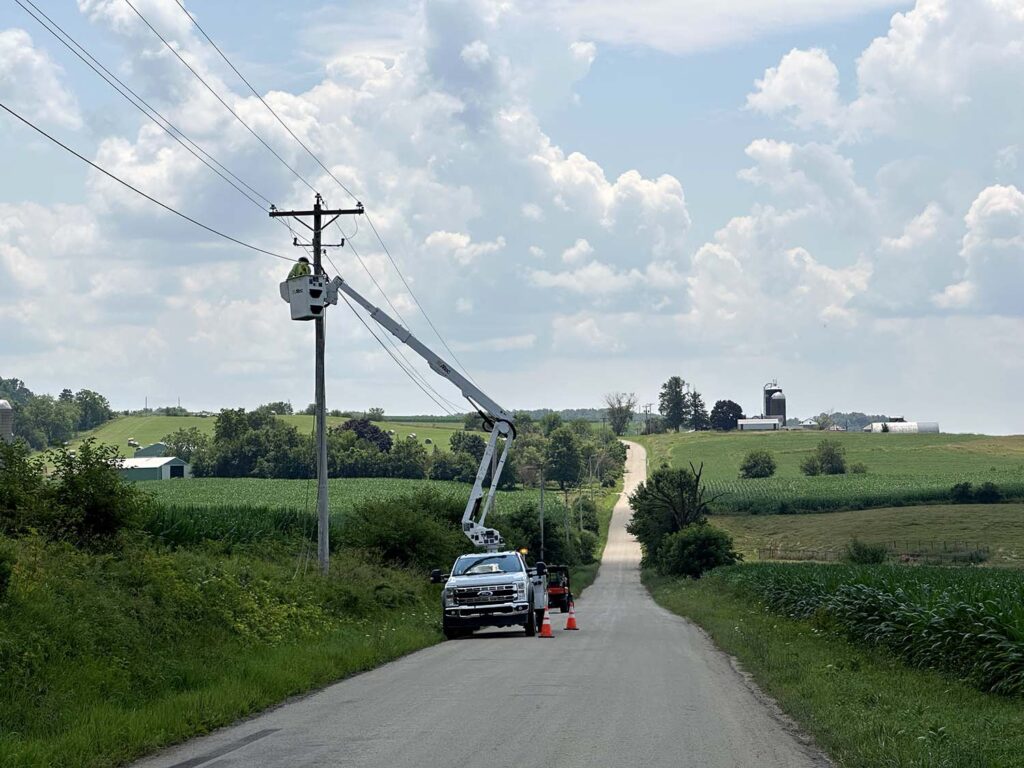
NRECA is urging the Trump administration to update federal broadband policies and programs to better support rural America’s access to high-speed internet and strengthen the economy, public safety, health and education.
“With over 200 electric cooperatives working to provide reliable, affordable high-speed broadband service across the communities they serve, the work of the new administration is critical to our success in closing the digital divide and boosting economic prosperity and quality of life in rural America,” said NRECA CEO Jim Matheson.
In letters to several new Trump administration officials—Commerce Secretary Howard Lutnick, Agriculture Secretary Brooke Rollins and Federal Communications Commission Chairman Brendan Carr—NRECA outlined how the federal government can empower co-ops to provide rural broadband by reforming key programs, regulations and funding mechanisms.
Topping the list is a recommendation to Lutnick that some of the current rules for the $42.5 billion Broadband Equity, Access and Deployment (BEAD) program be replaced with more “commonsense policies” that get BEAD funds to rural internet providers more quickly.
In addition, the letter states that the National Telecommunications and Information Administration under the Commerce Department should maintain its preference for fiber within the BEAD program, add flexibility in meeting certain rate, wage and permitting statutes and remove non-statutory obstacles to disbursing BEAD funds.
NTIA should also evaluate and address rural middle mile constraints and the impact a lack of adequate middle mile capacity has on rural economic development, precision agriculture, businesses and residents, the letter says. The $1 billion Enabling Middle Mile Broadband Infrastructure program created by the bipartisan infrastructure law to connect local networks to the internet and reduce data transmission costs saw demand far exceed available funding.
In the letter to USDA, NRECA encouraged Rollins to strengthen ReConnect, which launched in 2018 to build out broadband to remote areas. The USDA program has awarded more than $5 billion toward rural high-speed internet projects.
NRECA recommended five regulatory priorities for Carr to consider at the FCC. They include exempting internet service providers with fewer than 100,000 subscribers from digital discrimination reporting and certain onerous broadband data collection filing obligations.
The letter also asked the commission to update how contributions are made into the federal Universal Service Fund to sustain telecom programs for low-income communities and keep up with technology advancements. Most co-ops that provide broadband participate in USF programs.
Finally, NRECA raised concerns about overly burdensome requirements for small providers related to network neutrality and customer proprietary network information certifications.
“America’s electric cooperatives are committed to promoting the deployment of advanced telecommunications capabilities within the rural communities and areas they serve, and electric cooperatives are expected to play a crucial role in the development of broadband infrastructure to serve rural unserved and underserved locations,” said Matheson. “We are counting on the new federal leaders to be a partner in this important endeavor for the country.”
Cathy Cash is a staff writer for NRECA.